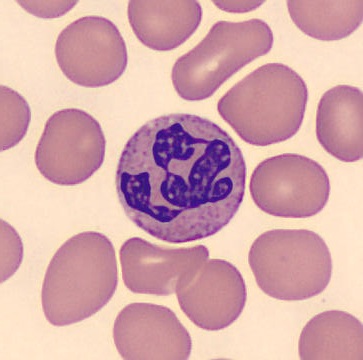Understanding of a blood report lab
Published: 25 Aug 2024

Decoding Your Blood Report
A comprehensive blood report offers valuable insights into your overall health. Here's a guide to the essential components:
Core Elements:
* Complete Blood Count (CBC):
* Red Blood Cells (RBC): Oxygen-carrying cells, indicating anemia or other conditions
* Hemoglobin (Hb): Oxygen-binding protein in RBCs, low levels suggest anemia
* Hematocrit (Hct): Percentage of blood volume occupied by RBCs, indicating anemia or other issues
* White Blood Cells (WBC): Infection-fighting cells, high or low levels may indicate infections or blood disorders
* Platelets: Blood clotting cells, abnormal levels may indicate clotting disorders or bone marrow issues
* Basic Metabolic Panel (BMP):
* Glucose: Blood sugar levels, high levels can indicate diabetes
* Calcium: Bone and muscle health, abnormal levels may relate to bone metabolism or parathyroid function
* Electrolytes: Sodium, potassium, chloride, and bicarbonate, imbalances affect heart, muscle, and nerve function
* Comprehensive Metabolic Panel (CMP):
* Liver Enzymes (ALT, AST, ALP, bilirubin): Abnormal levels may indicate liver damage or disease
* Kidney Function (creatinine, BUN): High levels can suggest kidney dysfunction
* Lipid Panel:
* Cholesterol: Total, LDL (bad), HDL (good), and triglycerides, help assess cardiovascular risk
* Thyroid Function Tests:
* TSH (Thyroid-Stimulating Hormone): Indicates thyroid gland function, abnormal levels may suggest thyroid dysfunction
* T3 and T4: Thyroid hormones regulating metabolism, abnormal levels may indicate thyroid issues
* Hemoglobin A1c (HbA1c):
* Long-Term Glucose Control: Measures average blood sugar levels over 2-3 months, crucial for diabetes management
Interpretation:
* Compare your results to reference ranges provided in the report. Deviations may signal potential health concerns.
* Consult with a healthcare professional to discuss your results, understand their implications, and determine appropriate actions and treatments.
Conclusion:
Understanding your blood report empowers you with valuable information about your health status. By reviewing key parameters and consulting with your healthcare provider, you can make informed decisions regarding your well-being and treatment options.
A comprehensive blood report offers valuable insights into your overall health. Here's a guide to the essential components:
Core Elements:
* Complete Blood Count (CBC):
* Red Blood Cells (RBC): Oxygen-carrying cells, indicating anemia or other conditions
* Hemoglobin (Hb): Oxygen-binding protein in RBCs, low levels suggest anemia
* Hematocrit (Hct): Percentage of blood volume occupied by RBCs, indicating anemia or other issues
* White Blood Cells (WBC): Infection-fighting cells, high or low levels may indicate infections or blood disorders
* Platelets: Blood clotting cells, abnormal levels may indicate clotting disorders or bone marrow issues
* Basic Metabolic Panel (BMP):
* Glucose: Blood sugar levels, high levels can indicate diabetes
* Calcium: Bone and muscle health, abnormal levels may relate to bone metabolism or parathyroid function
* Electrolytes: Sodium, potassium, chloride, and bicarbonate, imbalances affect heart, muscle, and nerve function
* Comprehensive Metabolic Panel (CMP):
* Liver Enzymes (ALT, AST, ALP, bilirubin): Abnormal levels may indicate liver damage or disease
* Kidney Function (creatinine, BUN): High levels can suggest kidney dysfunction
* Lipid Panel:
* Cholesterol: Total, LDL (bad), HDL (good), and triglycerides, help assess cardiovascular risk
* Thyroid Function Tests:
* TSH (Thyroid-Stimulating Hormone): Indicates thyroid gland function, abnormal levels may suggest thyroid dysfunction
* T3 and T4: Thyroid hormones regulating metabolism, abnormal levels may indicate thyroid issues
* Hemoglobin A1c (HbA1c):
* Long-Term Glucose Control: Measures average blood sugar levels over 2-3 months, crucial for diabetes management
Interpretation:
* Compare your results to reference ranges provided in the report. Deviations may signal potential health concerns.
* Consult with a healthcare professional to discuss your results, understand their implications, and determine appropriate actions and treatments.
Conclusion:
Understanding your blood report empowers you with valuable information about your health status. By reviewing key parameters and consulting with your healthcare provider, you can make informed decisions regarding your well-being and treatment options.
